Medical expert of the article
New publications
Preparations
Drugs to treat and restore the liver
Last reviewed: 03.07.2025

All iLive content is medically reviewed or fact checked to ensure as much factual accuracy as possible.
We have strict sourcing guidelines and only link to reputable media sites, academic research institutions and, whenever possible, medically peer reviewed studies. Note that the numbers in parentheses ([1], [2], etc.) are clickable links to these studies.
If you feel that any of our content is inaccurate, out-of-date, or otherwise questionable, please select it and press Ctrl + Enter.
Special medications are used to eliminate liver diseases. Let's consider the most popular and effective drugs, their types, indications for use and cost.
Medicines for the liver are called hepatoprotectors, prescribed by the attending physician to eliminate organ dysfunction. They are necessary for the restoration of organ cells during long-term antibacterial or anti-tuberculosis therapy, the use of painkillers, antitumor and other drugs.
Faced with the problem of choosing a drug, patients are interested in the same questions. Which remedy is better, more effective, safer and cheaper? Today, the pharmaceutical market offers many hepatoprotectors that are used both for treatment and restoration of the organ:
- Phospholipids.
- Herbal remedies.
- Amino acid derivatives.
- Bile acids.
- Homeopathic medicines.
- Biologically active additives.
- Medicines of animal origin.
All drugs act differently on the body and have different effectiveness. Based on the results of diagnostics and tests, symptoms and severity of the disease, the doctor selects a medicine.
The largest gland in the human body is the liver. The organ performs many important functions: it participates in digestion, accumulates blood and glucose, neutralizes toxins and harmful substances, produces hormones and enzymes, cholesterol, and bilirubin. The slightest disturbance in its functioning negatively affects a person's well-being.
Liver medications are used to treat various diseases and restore damaged cells. Let's look at the most popular ones:
- Herbal hepatoprotectors
They are produced in the form of capsules and tablets with an enteric coating. In this category, drugs that contain silymarin, which has a pronounced health effect, have proven themselves well:
- Karsil is a tablet containing the active ingredient, the fruits of dry milk thistle.
- Gepabene – capsules with extract of medicinal fumitory and milk thistle.
- Silimar – tablets with dry milk thistle extract and other substances.
They have minimal toxic effects on the body.
- Essential phospholipids
The drugs are used in the treatment and prevention of cirrhosis, fatty degeneration, chronic, toxic and alcoholic hepatitis, radiation syndrome. The drugs are components of the hepatocyte cell wall. They penetrate the lipid layer of damaged cells and improve their functioning.
Taking the medicine minimizes energy expenditure, increases enzymatic activity and physicochemical properties of bile. To achieve a stable therapeutic effect, long-term use is necessary, preferably intravenous administration. The most popular medicine from this group is Essentiale and Essentiale Forte N.
- Biologically active additives
Many patients are sure that food supplements and various dietary supplements are absolutely safe and can be taken without a doctor's permission. But this is not true, some supplements have hepatotoxic properties and when interacting with other means cause many side effects. Dietary supplements are not used as the main means, they are used in complex therapy or as an auxiliary drug.
Indications for the use of drugs for the liver
The use of any medication is possible only with the appropriate medical permission. Indications for the use of drugs for the liver depend on the severity of the underlying disease and the presence of concomitant diseases, the age of the patient and other characteristics of the body. Today, there are many hepatoprotectors that are prescribed in such cases:
- Hepatitis - most often prescribed to eliminate viral hepatitis when antiviral drugs have not produced the expected result or such therapy is impossible. Hepatoprotectors are used both in complex treatment and for disease prevention.
- Fatty degeneration – occurs in patients with type 2 diabetes and patients with obesity. In such patients, fat cells form in the liver, which disrupt its normal functioning. For treatment, hepatoprotectors, cholesterol-lowering agents, antidiabetic drugs, diet and physical activity are prescribed.
- Alcoholic hepatitis with risk of cirrhosis - before starting treatment, it is necessary to completely give up alcohol, since pharmaceuticals will not give a therapeutic effect. If alcohol consumption continues, then no drugs will help restore the diseased organ.
- Toxic, drug-induced hepatitis – medications not only eliminate the symptoms of the disease, but also help restore the organ. A prerequisite for recovery is the elimination of factors that provoked the malaise.
It is important to understand that it is difficult to completely restore liver health with medication alone, so the patient is prescribed a special diet, physiotherapy, and mandatory treatment of the pancreas and gallbladder, that is, the organs involved in digestion.
Medicines for the treatment of liver cirrhosis
One of the dangerous diseases that is practically untreatable is cirrhosis. The choice of therapy and drug depends on the stage and activity of the pathological process. Today, there are no drugs that could completely eliminate the disease. Medicines are aimed at correcting possible complications and protecting the organ from further destruction.
Medicines for liver cirrhosis:
- Inactive form - in compensated cirrhosis, vitamin preparations are used for treatment. As a rule, patients are prescribed vitamin-mineral complexes: Alphabet, Vitrum, Duovit, Biomax.
- Moderately active cirrhosis – patients are prescribed herbal and vitamin remedies. These are vitamin complexes of group B, vitamin C, rutin, folic and lipoic acid. Of the medications, preference is given to preparations based on milk thistle and artichoke.
- Decompensated cirrhosis – at this stage, various complications appear. For therapy, lipoic acid is used, which is administered orally/intravenously, and various hepatoprotectors.
- Cirrhosis complicated by ascites – the patient is prescribed diuretics: Spironolactone, Furosemide, Triampur.
- Cryptogenic cirrhosis is the most dangerous form of the disease. Hepatoprotectors, herbal remedies, amino acid derivatives and other medications are used to treat pathology with an unknown cause.
- Viral cirrhosis - treatment is based on the correction of the underlying disease. Most often, patients are prescribed Prednisolone. The dosage and duration of therapy are selected individually.
When treating cirrhosis, not only drug therapy is necessary, but also diet, complete cessation of smoking and alcohol. If the pathology is detected at an early stage, the liver can be restored.
Release form
The effectiveness of a medicine is determined not only by its composition, but also by its form of release. Medicines for the liver are available in the following forms:
- Pills.
- Enteric-coated capsules.
- Powders for the preparation of solutions for oral use.
- Ampoules for injections (drip and intravenous administration).
- Drops (for small children).
- Teas, herbal complexes.
The doctor prescribes the most appropriate dosage form, based on the course of the disease and the patient’s age.
Pharmacodynamics
The effectiveness of a drug is determined by its biochemical properties. Pharmacodynamics provides information about the pharmacological group of the drug, its composition and indications for use. Let's consider these characteristics using the example of different groups of drugs prescribed for the treatment of liver diseases.
- Herbal hepatoprotectors
The active ingredients of Gepabene are extracts of medicinal plants. The active component silymarin is produced from milk thistle fruits. It has a choleretic effect, normalizes the tone of the bile ducts and the amount of bile, improving its outflow into the intestine. Improves the function of protein formation, stabilizes hepatocyte membranes.
- Essential phospholipids
Essentiale is a highly purified fraction of phosphatidylcholine. The active ingredients are soybean phospholipids, which are similar in structure to elements of hepatocytes. A deficiency of these substances leads to a disruption of fat metabolism and the development of fatty degeneration. The drug restores cellular structures, accelerates the regeneration process and slows down the formation of connective tissue.
- Drugs of animal origin
Hepatosan is a preparation with freeze-dried pig liver cells. Enhances the detoxification function, absorbs and removes toxins, accelerates the regeneration processes of hepatocytes. It has two phases of action: intestinal and metabolic. In the first phase, detoxification of toxic substances in the intestine occurs, and in the second, biological components restore the functional activity of the damaged organ. The composition of the product includes vitamins, essential phospholipids, enzymes, amino acids.
- Amino acids
Ursosan is a hepatoprotector with a choleretic effect. It is produced in the form of capsules for oral use with the active substance ursodeoxycholic acid. It forms non-toxic mixed micelles with toxic bile acids, preventing damage to the cell membranes of hepatocytes. Reduces the amount of cholesterol in bile, promotes its absorption and excretion. Dissolves cholesterol gallstones and prevents the formation of new ones. The active component slows down the aging process and death of hepatocytes.
- Biologically active additives
Liv 52 is a combination drug with hepatoprotective, anti-inflammatory, choleretic and antitoxic effects. Improves the process of digestion and absorption of food. Restores liver cells, minimizes any degenerative changes and enhances intracellular metabolism. Normalizes the level of bilirubin and other liver enzymes, improves the colloidal properties of bile and prevents stone formation.
Pharmacokinetics
For the treatment of gastrointestinal diseases, various drugs are used, which differ not only in their composition, but also in the forms of release. Pharmacokinetics allows us to learn about the processes of absorption and metabolism of the drugs used.
- Herbal hepatoprotectors
The active substance Gepabene is practically insoluble in water, forms salts with alkalis. If the medicine gets into the intestine, it is absorbed into the blood with split intestinal bacteria. The maximum concentration in plasma with oral administration is achieved in 2 hours. Metabolites are excreted with bile. The half-life is 5-6 hours.
- Essential phospholipids
About 90% of the administered dose of Essentiale is absorbed in the small intestine. The active components are broken down by phospholipase A to 1-acyl-lysophosphatidylcholine. Half of the resulting substance undergoes reverse acetylation during absorption in the intestinal mucosa. The maximum concentration in the blood plasma is achieved 6-24 hours after administration. It is excreted as metabolites in feces and urine.
- Drugs of animal origin
Hepatosan is produced in the form of capsules with an enteric coating for oral use. After entering the body, the active substances quickly spread throughout the body, providing a therapeutic effect. It is excreted as metabolites in the urine.
- Amino acids
Ursosan is absorbed from the small intestine and ileum. The concentration of the active substance in the blood plasma depends on the dose taken. Binding to plasma proteins is high, ursodeoxycholic acid penetrates the placental barrier. Metabolized in the liver, excreted with bile, feces and urine.
- Biologically active additives
The pharmacokinetic properties of Liv 52 are due to the combined action of its active components.
Liver Medicines After Alcohol
Alcohol destroys liver cells not only in chronic alcoholics, but also in those who like to drink alcohol from time to time. But the situation is fixable, since the organ has the ability to recover. There are many medications that will help normalize liver function and speed up the regeneration of damaged cells.
The best medicines for the liver after alcohol:
- Restorative – this category includes hepatoprotectors, products with essential phospholipids. The most commonly used are: Essentiale, Phosphogliv, Essliver.
- Preparations (catalysts) for regeneration activation are vitamin complexes with amino acids that create an environment for the formation of new hepatocytes. This category includes: D i Guard, Dipana.
- Cleansing agents – facilitate the work of the organ, remove toxins and eliminate signs of intoxication. Patients are prescribed: Karsil, Gepabene, Geptral, Silimar.
All the above medications can be used only as prescribed by a doctor. After diagnosing the patient's condition, the doctor selects the optimal medication, determines the necessary dosage and duration of therapy. But the main rule of treatment after alcohol damage is complete abstinence from alcohol.
Medicines for liver restoration
Many preparations are used to restore the liver. They can be plant-based, contain enzymes from animal liver, or contain amino acids and essential phospholipids. There are also combined products with complex action. It is impossible to name the best product, since there is an optimal product for each case.
Medicines for liver restoration:
- Biologically active additives – Artichoke Extract, Heptralite, Liposil, Hepatrin.
- Tablets and capsules – Enerliv, Essliver forte, Karsil, Liv 52.
- Homeopathic remedies – Galsten drops, Hepel tablets.
For recovery, you can use not only pharmacological means, but also methods of traditional medicine. For example, aromatherapy with anise, rosemary, juniper and other essential oils. The recipe for pumpkin with honey has a particularly popular and therapeutic effect. Ripe vegetables must be washed, the top cut off and the seeds cleaned out. Pour honey inside and close with the cut top. Leave the vegetable to infuse at room temperature or in a cool place for 10 days. After this period, drain the honey and take 1 spoon 2-3 times a day. The course of such therapy is 1-2 months.
Liver Cleansing Medicines
Many people face such a problem as liver disease. The main filter of the body ceases to fully cope with its functions, causing disturbances in other organs and systems. To eliminate the pathological condition, herbal preparations are usually used. Such products allow you to regulate enzyme activity, minimize the effects of toxins and increase resistance to the negative effects of harmful substances.
Basic list of medications for liver cleansing:
- HeptraLight – contains a metabolically active substance, effectively removes toxins. For treatment, take 200 mg once a day.
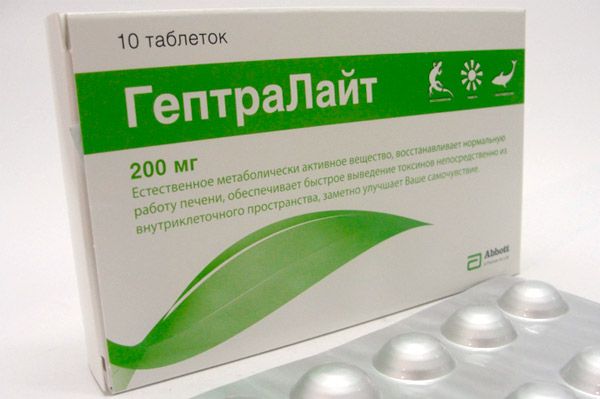
- Liposil is a preparation based on milk thistle extract and soy phospholipids. To cleanse the liver, take 1-2 capsules per day.
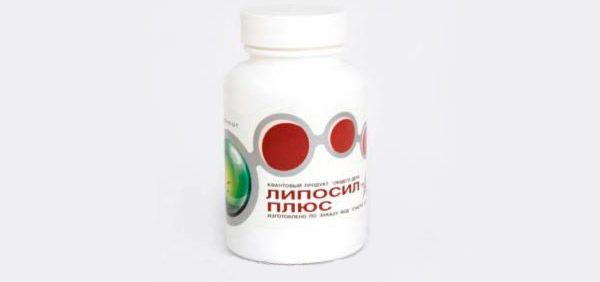
- Bonjigar - active ingredients: chicory, nightshade, barberry, white eclipta. The product is available in the form of gelatin capsules and syrup. For cleansing, take 1-2 capsules or 15 ml of syrup 3 times a day after meals.
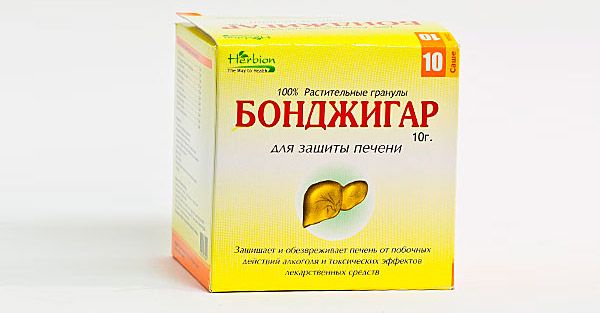
- Allochol – contains condensed bile, activated carbon, nettle and garlic extract. Enhances the synthesis of bile acids and bile. You can take 1-2 tablets 3-4 times a day.
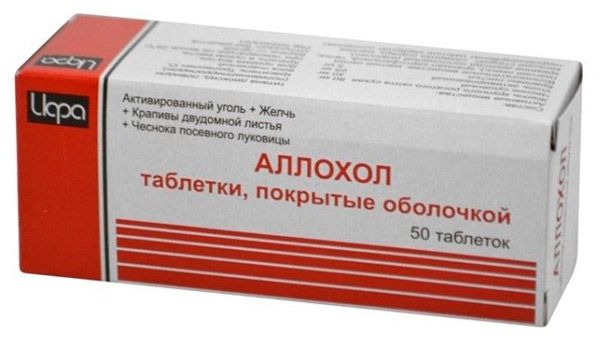
- Silymarin – this substance is included in many medications. It has a beneficial effect on hepatocytes, accelerates the excretion of bile. For treatment, take 200-300 mg per day.
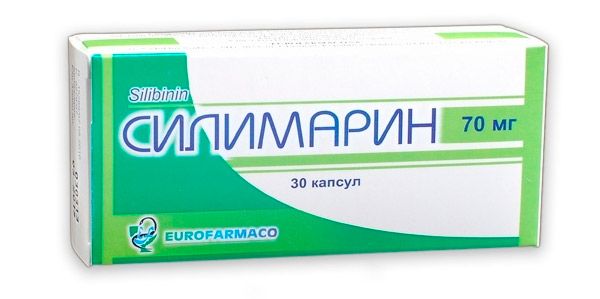
Magnesia is used to cleanse the liver and gall bladder. This substance increases the acidity of the stomach and has a powerful choleretic effect, so it can only be used with the permission of a doctor. To prepare the medicine, dissolve 2 spoons of magnesia in a glass of boiled water and drink the solution 30-40 minutes before eating. Before and after taking the medicine, it is recommended to lie on your right side for 1-2 hours.
Read the full list of liver cleansing medications here.
Liver Medicines After Antibiotics
Antibiotics are used to eliminate many diseases. Their long-term use has a negative impact on the health of all organs and systems. Liver medications after antibiotics restore the filter, since it is the one that removes the decay products of medications, toxins and other harmful substances from the body.
To restore the organ, special means are used - herbal preparations, that is, hepatoprotectors. The most popular medications are:
- Medicines with herbal components and milk thistle - Karsil, Liv 52, Galstena, Gepabene, Ovesol. Stabilize cell membranes and have an antioxidant effect.
- Essential phospholipids – Essentiale forte, Essliver, Phosphogliv. Accelerate regeneration processes, have an antifibrotic effect.
- Products with ursodeoxycholic acid – Ursolfac, Ursosan. Protect cell membranes, eliminate inflammation and accelerate bile excretion.
Folk remedies are excellent for treatment after antibiotics. But do not forget that such methods are an auxiliary therapy, that is, an addition to the main treatment.
- Take equal proportions of milk thistle, corn silk and chicory, pour 200 ml of boiling water over them. The decoction should be infused for 10-12 hours, after which it should be filtered and taken before meals.
- Pour 2 cups of boiling water over chicory flowers and simmer for 20-30 minutes. Strain the medicine, add a couple of lemon slices and a spoonful of honey, and drink like tea.
- Finely chop 1 kg of cabbage, add currants or lingonberries, kiwi and orange. Mix the salad well and prepare a dressing from lemon juice, olive oil, spices and apple cider vinegar. Eat the salad throughout the week with a piece of black bread.
Liver medicines in ampoules
To eliminate liver and gastrointestinal diseases, many drugs of different forms are used. Based on the results of tests and diagnostics, the course of the disease and the characteristics of the patient's body, the doctor selects the best therapy option.
Liver medicines in ampoules:
- Heptral
Hepatoprotector with antidepressant activity. Has a choleretic, cholekinetic, antioxidant, regenerating, neuroprotective effect. The active substance is ademetionine, it replenishes its deficiency in the body and takes part in biological transmethylation reactions. Increases the content of glutamine in the liver, normalizes metabolic reactions and has a choleretic effect.
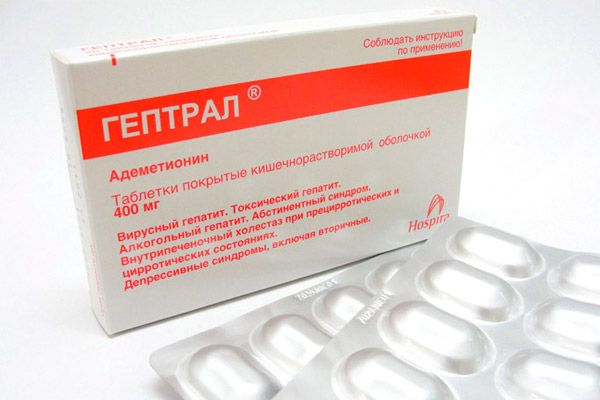
- Geptral is prescribed for the treatment of hepatitis of various etiologies, cholecystitis, cholangitis, cholestasis, toxic lesions. Intravenous administration is indicated for fatty degeneration, cirrhosis, encephalopathy, withdrawal syndrome. Ampoules are used intramuscularly or intravenously by drip. The daily dosage should not exceed 800 mg.
- Contraindicated for use in the first and second trimesters of pregnancy and during lactation. Not prescribed for patients under 18 years of age and in case of individual intolerance to the components. Side effects appear when the recommended dosage is exceeded. Most often, these are allergic reactions and dyspeptic disorders, gastralia.
- Essentiale N
Solution for intravenous administration from the pharmacological group of hepatoprotectors. Active substance – essential phospholipids 250 mg. The active component regulates the metabolism of lipoproteins and increases their binding to cholesterol. It has a detoxifying, restorative effect, prevents the formation of connective tissue in the liver.
- Used only for intravenous administration, intramuscular injections may cause local allergic reactions. For dilution, use 5-10% dextrose solution. The resulting solution should be transparent during the administration. The use of electrolyte solutions (Ringer's solution, isotonic) for dilution is contraindicated.
- Indications for use: hepatitis, fatty degeneration, cirrhosis, toxic lesions and necrosis of liver cells. Helps with toxicosis during pregnancy, hepatic coma and precoma, radiation syndrome and psoriasis, in the pre- and postoperative period.
- The use of this product during pregnancy is possible only on medical prescription, since gasoline alcohol penetrates the placental barrier and negatively affects the development of the fetus. It is not used to treat patients under 3 years of age and in case of hypersensitivity to the components. Side effects are manifested by the immune system, causing allergic reactions and itching.
- Remaxol
Balanced infusion solution with hepatoprotective properties. Available in 400 ml glass bottles. Active ingredients: succinic acid 5.28 g, meglumine 8 g, riboxin 2 g and other components. The drug reduces the content of bilirubin and its fractions, minimizes the activity of excretory enzymes of hepatocytes and oxidizes cholesterol, converting it into bile acids.
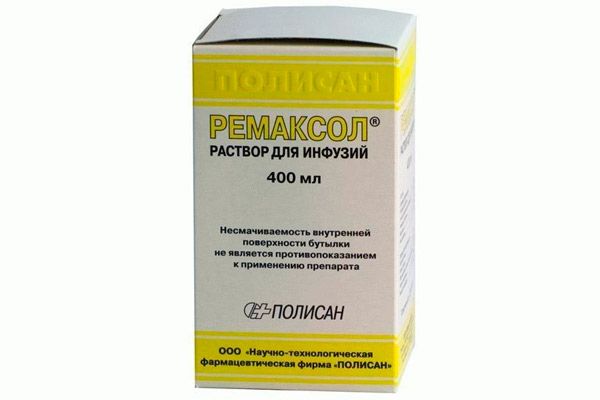
- Main indications for use: liver dysfunction in toxic, drug and alcoholic hepatitis. Complex treatment of viral hepatitis. When administered dropwise, the active components quickly spread throughout the body tissues. Daily dosage is 400-800 ml, the rate of administration is 2-3 ml/min.
- Contraindicated for use during pregnancy and lactation. Not prescribed to pediatric patients and in case of individual intolerance to the components. Under medical supervision, use for gout, nephrolithiasis and hyperuricemia. It is not recommended to mix in one bottle with other intravenous agents.
- In case of overdose, side effects are possible. With rapid introduction of the solution, a feeling of heat, dryness and irritation in the throat, hyperemia of the skin appear. Allergic reactions, nausea, headaches, vomiting, dizziness are possible. If these symptoms appear, it is necessary to seek medical help to adjust the dose.
- Laennec
Immunomodulator, available in ampoules for injections. Stimulates humoral immunity, increases the activity of phagocytes, increases the bactericidal activity of leukocytes. Active components stimulate the regeneration of damaged cells, prevent the deposition of cholesterol and lipids.
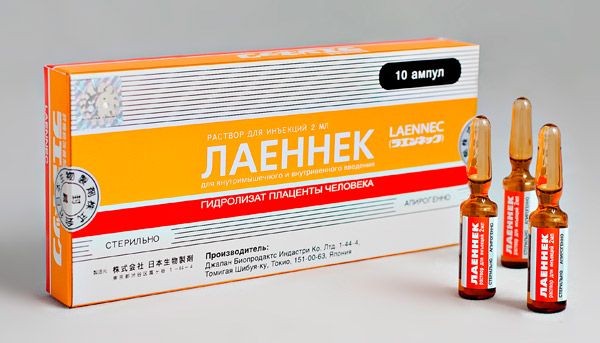
- Injections are prescribed to eliminate chronic liver diseases of various etiologies. The medication helps with atopic dermatitis and chronic recurrent herpes. In liver pathologies, 2 ml per day is prescribed intravenously. The maximum dosage should not exceed 10 ml per day. The course of treatment takes 2-3 weeks.
- Contraindicated for use in pediatric patients, during pregnancy and lactation. If these recommendations are not followed and the prescribed dosage is exceeded, side effects are possible. Most often, these are painful sensations and numbness at the injection site, allergic reactions.
- Cryomelt MN
Injection solution, hepatoprotector. The active substance is honey, available in 1 ml ampoules. The drug is a sterile native solution of honey in water, prepared using a special technology. It has an antioxidant effect and stabilizes the membranes of damaged cells. Hepatoprotective activity provides protection from the negative effects of toxins and harmful substances.
- Cryomelt is prescribed for the treatment of chronic hepatitis and toxic lesions, as well as fatty degeneration of various etiologies. Patients are administered 1 ampoule per day, the course of treatment is 10-20 days.
- Contraindicated in case of hypersensitivity to bee products and for pediatric patients. It is used with special caution by patients with diabetes. Side effects manifest as allergic reactions of varying severity.
Liver Medicines for Children
Treatment of any disease in pediatric patients requires a professional medical approach. Children are prescribed safe drugs with minimal side effects and contraindications.
Let's look at effective liver medications for children:
- Galstena is a homeopathic herbal remedy. It has hepatoprotective, anti-inflammatory, choleretic and antispasmodic properties. It is used for complex therapy of pancreatitis, liver restoration, after long-term use of antibiotics, for hepatitis and other pathologies. It is available in drops, which allows it to be used for the youngest patients.

- Essentiale - the active ingredients of this medication are essential phospholipids. In their structure, they are similar to the endogenous membranes of liver phospholipids. Prescribed for fatty degeneration, acute and chronic hepatitis, organ cell necrosis and toxic lesions. Available in the form of capsules and injections for intravenous administration.
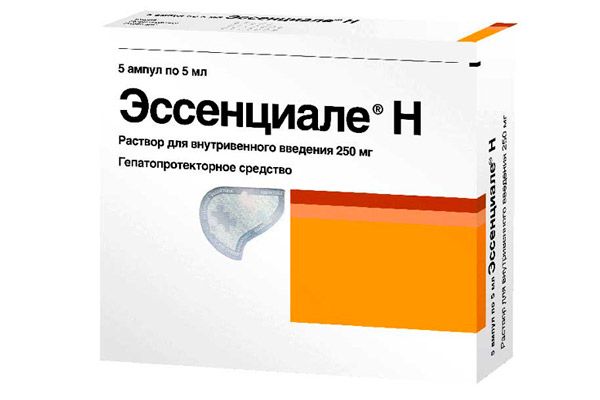
- Allochol is a medication that increases bile production. It improves the secretory function of the gastrointestinal tract, reduces fermentation processes in the intestines, and accelerates the regeneration of damaged liver and gallbladder cells. It is prescribed for the treatment of chronic hepatitis, cholecystitis, cholangitis, and prolonged constipation associated with intestinal atony. It is available in the form of capsules with an enteric coating.
- Antral is a hepatoprotector used to treat hepatitis of various etiologies and minimizes the signs of dyspeptic and asthenovegetative syndrome. It is prescribed to treat cirrhosis and fatty degeneration, various inflammatory and infectious diseases of the gastrointestinal tract. Antral is available in capsules for oral use.
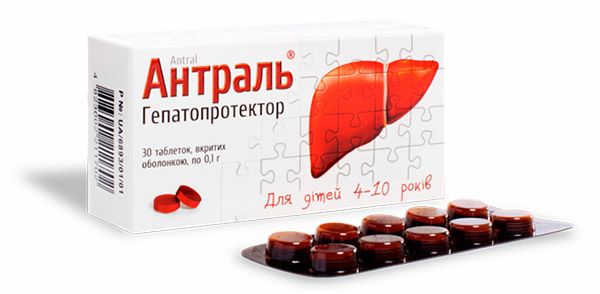
- Betargin - contains amino acids (betaine, arginine) necessary for normalizing the functions of the hepatobiliary system. It is produced in the form of a solution for oral use. It is used to treat functional disorders of the liver, hepatosis, viral hepatitis, steatosis, drug-induced and toxic damage to the organ.
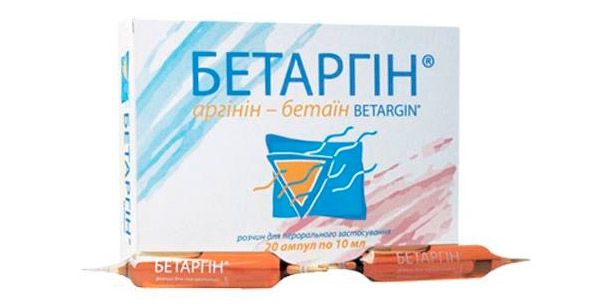
Method of administration and dosage of drugs for the liver
In order for the treatment to be fast and effective, the doctor prescribes the method of administration and dosage of medications to the patient. For the liver, drugs of different forms are used, so the therapeutic effect depends on the method of their use.
- Herbal hepatoprotectors
Gepabene is prescribed 1 tablet 2-3 times a day. If pain in the right hypochondrium occurs at night, an additional capsule is allowed before bedtime. The maximum daily dose is 6 tablets in 3 doses, the duration of therapy is from 3 months.
- Essential phospholipids
The daily dose of Essentiale is 4-6 tablets in 3-4 doses, the duration of treatment is individual for each patient. Tablets are taken without chewing, with water. The dosage of the solution for intravenous injections is up to two ampoules per day.
- Drugs of animal origin
Hepatosan is taken at 200-400 mg depending on the indications. The course of treatment is 10-20 days.
- Amino acids
Ursosan is taken at a rate of 10 mg/kg of body weight. The daily dosage is divided into 2-3 doses. For patients under 2 years of age, the dosage is selected individually.
- Biologically active additives
Liv 52 is taken for both therapeutic and prophylactic purposes. For children over 6 years old and adults, 1-3 tablets 2-3 times a day. Drops are used to prevent liver diseases, 10-20 drops 2 times a day for children over 2 years old and 80-160 drops for adults.
Using Liver Medications During Pregnancy
Pregnancy is not only a long-awaited period for every woman, but also quite a responsible one. During pregnancy, the work of some organs and systems is disrupted, but most often the liver suffers. The blood supply process is disrupted, which negatively affects liver functionality. This process is considered natural, since after childbirth the body's work is restored. But expectant mothers may experience an exacerbation of chronic diseases that require treatment.
Let's consider medications for the liver during pregnancy, which are used to prevent and eliminate pathological conditions:
- Essentiale Forte is a complex product with phospholipids, improves the cell membranes of the damaged organ. Consists of natural components that do not penetrate the placental barrier. Can be used in any trimester.
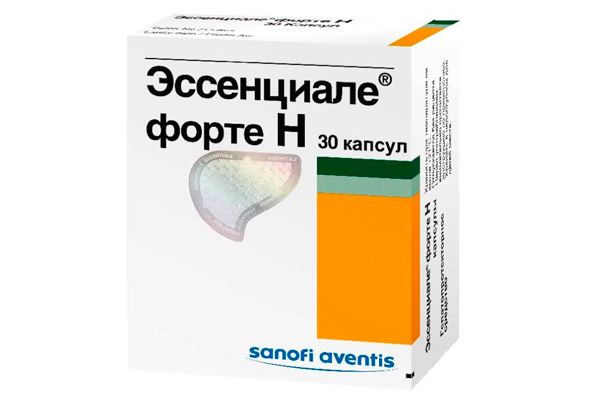
- Legalon is a herbal medicine with the active ingredient milk thistle. It has a strong hepatoprotective effect, improves intracellular metabolism, stabilizes hepatocyte membranes. It is used to treat many diseases, regardless of etiology and severity.
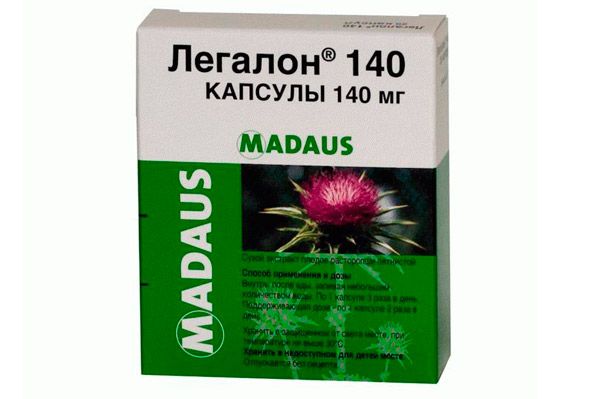
- Karsil is one of the most popular drugs for restoring a weakened or damaged liver. The active ingredient is milk thistle extract. It is used during pregnancy and for pediatric patients. It is well tolerated and does not cause addiction.
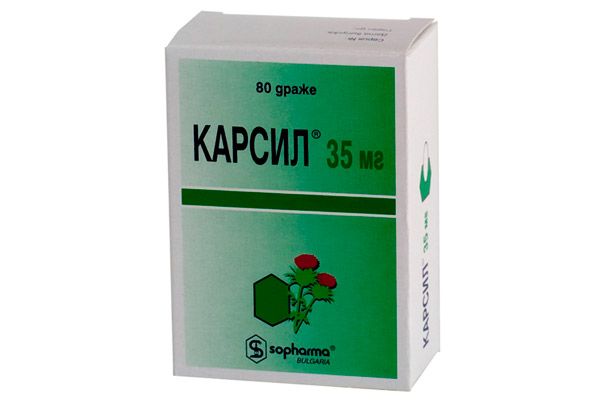
- Geptral is a hepatoprotective agent with the active substance ademetionine. It has a regenerating, detoxifying, antioxidant and neuroprotective effect. It is effective in the treatment of toxic, viral and inflammatory liver lesions.
- Hofitol is a combination drug with choleretic, diuretic and hepatoprotective properties. The active ingredient is artichoke extract. It is used for chronic and acute liver and organ diseases.
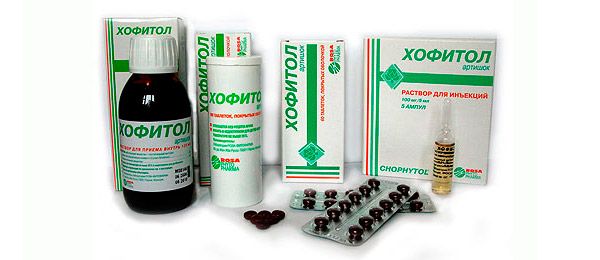
Treatment of any diseases in expectant mothers has certain difficulties, as many drugs are contraindicated. The use of liver drugs during pregnancy is possible only on doctor's prescription. This is due to the fact that the active substances can penetrate the placental barrier, negatively affecting the development of the fetus.
The woman is given safe medications, usually herbal. Many hepatoprotectors not only restore the liver and gastrointestinal tract, but also alleviate the condition of the pregnant woman with toxicosis.
Contraindications for use
Medicines have not only indications, but also contraindications for use. Let's consider the prohibitions on the use of medicines for the restoration of hepatocytes.
- Herbal hepatoprotectors
Gepabene is not allowed to be used in cases of acute liver and bile duct diseases, in cases of intolerance to the components of the drug and for the treatment of patients under six years of age.
- Essential phospholipids
Essentiale is prohibited in case of hypersensitivity to its active ingredients. The injection solution is not prescribed to newborns and premature babies, as the product contains benzyl alcohol.
- Drugs of animal origin
Hepatosan has only one contraindication – intolerance to the active components.
- Amino acids
Ursosan is not prescribed to patients with acute inflammatory lesions of the bile ducts and gall bladder, as well as in case of contractile function disorders. Tablets are not prescribed for calcified stones and biliary colic, renal and hepatic dysfunction. The use of the drug in pediatric practice is possible for patients over 5 years old.
- Biologically active additives
Liv 52 is not used in case of intolerance to its components, during pregnancy and lactation. It is used with special caution in diseases of the gastrointestinal tract and for the treatment of children with pathologies of the biliary tract.
Side effects
Failure to follow doctor's recommendations for using tablets leads to undesirable effects. Side effects of liver medications are manifested by many organs and systems. Most often, these are allergic reactions: skin itching, rash, redness.
Gastrointestinal and cardiovascular disorders are possible. Patients complain of headaches and dizziness. Most hepatoprotectors and essential phospholipids are well tolerated, but only if the prescribed dosage and duration of therapy are observed.
Overdose
Increased doses of the drug may cause adverse symptoms. Overdose manifests itself as increased side effects. Most liver medications are well tolerated. In rare cases, signs of gastrointestinal upset and headaches appear.
To eliminate the symptoms of overdose, it is recommended to stop taking the drug and seek medical help to adjust the dose and duration of therapy.
Interactions with other drugs
The use of several drugs to eliminate one disease is possible only with the appropriate doctor's prescription. Interaction with other drugs depends on the form of release of the main drug.
Intravenous and intramuscular injections should not be mixed with other drugs. Since local allergic reactions, redness at the injection site and other symptoms are possible. Particular attention should be paid to solutions for diluting ampoules. In any case, when using several drugs at the same time, it is necessary to observe a time interval of 1-2 hours to prevent side effects.
Storage conditions
The therapeutic properties of the drugs largely depend on storage conditions. Tablets should be kept in the original packaging, protected from sunlight and out of the reach of children. These recommendations also apply to injections for intravenous/intramuscular administration.
Particular attention should be paid to the temperature regime, the temperature should not exceed 25°C. Open ampoules for injections should be used on the same day. If the drug has become cloudy or flakes have appeared in it, then such a medicine is contraindicated for use. This also applies to tablets, if the capsules have changed their physical and chemical properties, then their use can lead to a number of unfavorable symptoms.
Best before date
Liver medications help restore the cells of the damaged organ and improve its functioning. Such medications are used in the treatment of patients of all ages. In order for the treatment to be safe and effective, before using the drug, you must study its instructions and pay attention to the expiration date. Using expired tablets or injections threatens side effects, disrupts the work of all organs and systems.
Attention!
To simplify the perception of information, this instruction for use of the drug "Drugs to treat and restore the liver" translated and presented in a special form on the basis of the official instructions for medical use of the drug. Before use read the annotation that came directly to medicines.
Description provided for informational purposes and is not a guide to self-healing. The need for this drug, the purpose of the treatment regimen, methods and dose of the drug is determined solely by the attending physician. Self-medication is dangerous for your health.


 [
[